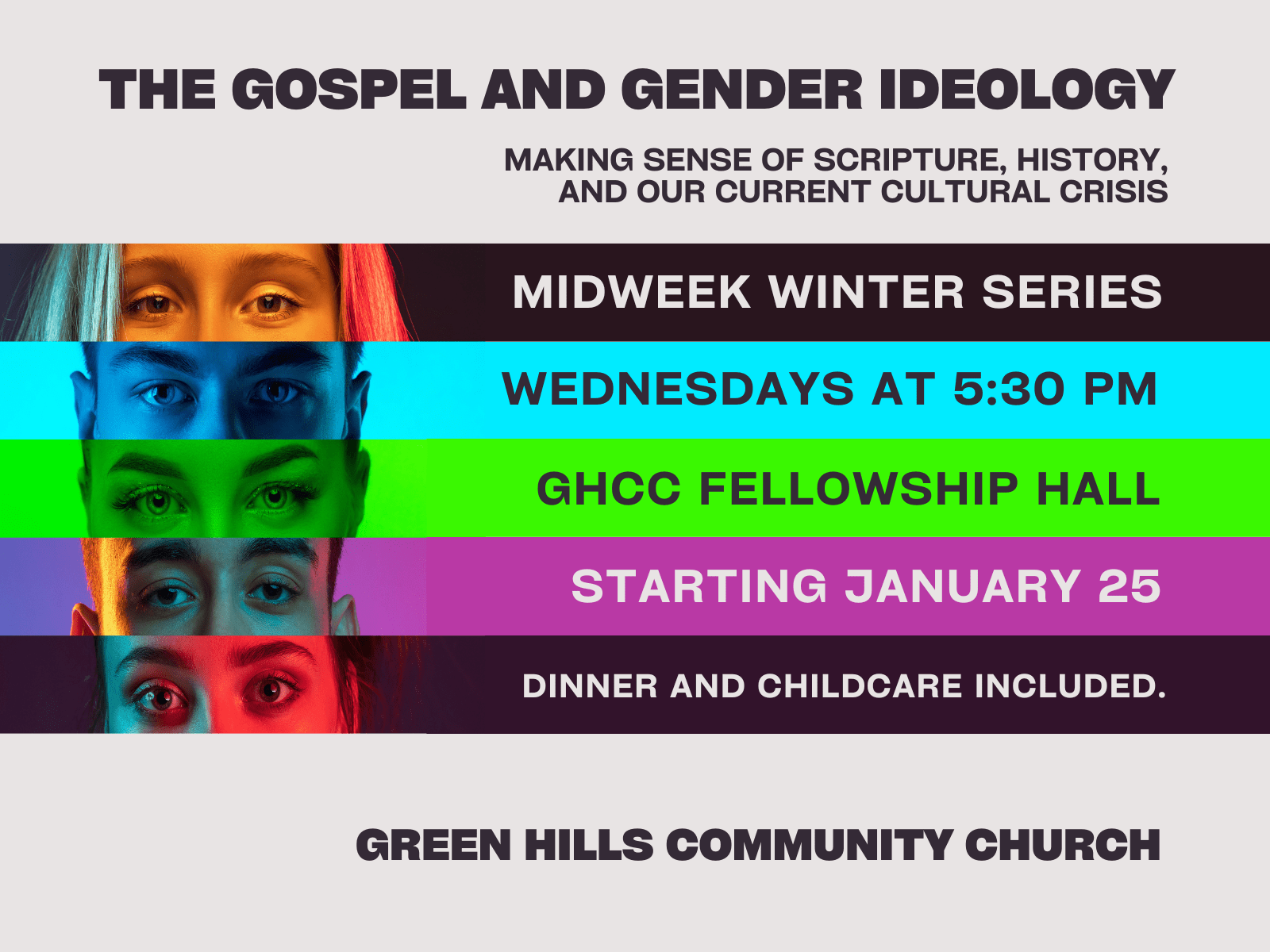
Last night we explored the role of the body of Christ in an environment where the culture seems to be shifting so quickly that we can barely stay on top of it. This is certainly true in the land of gender ideology. I shared with the participants my theory that because LGBTQIA+ advocacy forces have managed to control much of the public narrative, it’s going to get harder and harder for the church to speak the truth in regard to these matters. I believe that this will be the reality both from the pulpit and in the public square.
Today I’ll share three of the popular narratives that are most concerning to me. They seem to have captured the hearts of millions of Americans, and yet they are substantively untrue when held up against the light of God’s Word. We carefully considered each one of these last evening …
1. Matters of sexual orientation (and all the gender-related subcategories therein) are the hallmark of human personhood and human identity. False. This may even be close to the truth, but it falls short. Yes, we are created in God’s image with a sexual identity that is central to the core of who we are. But the summation of a person’s identity is neither their sexual behavior nor their sexual desires. We’re living in a time when many want to identify themselves and each other (right down to the pronouns) based on wildly subjective interpretations of “gender,” as if “sex” and “gender” were completely interchangeable terms. And I’m noticing in contemporary literature that “gender” is rarely clearly defined. In contrast, the Bible grounds us in the undeniable reality of biological sex, and reveals many other human characteristics which fall under the umbrella of our being God’s image bearers (intellect, emotion, volition, etc.). Though our fallen world is marked by gender dysphoria and some rare chromosomal abnormalities, these do not negate God’s created order. So the question is not “Who do I believe myself to be?” but “Who has God purposefully designed and created me to be?” When we answer that question correctly, we are a whole lot more (and a whole lot more valuable) than that which can be captured by popular (and seemingly ever-shifting) labels.
2. Matters of sexual orientation (et al) are matters of basic equity and civil rights. Again, I have to respectfully disagree. I understand the desire to frame gender-related issues in this manner, and it seems to be working, but I don’t think it’s valid because we’re not talking about immutable characteristics like the color of a person’s skin. We moved to California right after the famous Proposition 8 became law (2008). Liberal California moved in a conservative direction and defined marriage as the union of a man and a woman. People were stunned. How did this happen the same year that political liberals enjoyed so many victories? When the studies were done, it was the African American community which had most strongly supported traditional marriage at the polls. In fact, I’ll go as far as saying that we cheapen the gains made by the civil rights movement when we attach “civil rights” to matters of personal choice. (I know that some will not like my use of the phrase “personal choice,” but please just hear me out … it is the LGBTQIA+ community that is most convincing me of this … please keep reading …)
3. Matters of sexual orientation (et al) are personal and fluid. Really? It gets interesting, doesn’t it? We’re being told, on the one hand, “Let me be me. Don’t tread on my civil rights.” And we’re being told, on the other hand, “I may identify one way today and a different way tomorrow, and you must grant me the freedom to self-identity in any way that I want, and to change my self-identity at any time that I want.” Friends, how can it be presented (and believed) both ways? I’ll tell you how. Moral relativism. As a culture, we’re drowning in it. I believe that, at this point, most Americans believe that we can simultaneously hold competing truth claims with neither of them being untrue. Sadly, widespread confusion about the nature (the “knowability”) of truth has invaded many segments of the professing church. (For more on the subject of moral relativism, see Relativism: Feet Firmly Planted in Mid-Air by Francis Beckwith and Gregory Koukl.)
So that was much of our substance last night. I touched briefly on the terms “heterosexual privilege,” “heterosexism,” and “heteronormativity,” just because I want us to be conversant in these things when the opportunity arises to shine the light of Christ. (If you weren’t able to attend, we have copies of all the handouts in the office.) Many of you expressed your appreciation for the video clip that I shared from the Oxford Union. We watched a stirring speech given by Calvin Robinson urging the Church of England not to jettison Biblical orthodoxy under the weight of cultural pressure.
I ended the night with an appeal for love. We must love God. We must love each other. We must love a lost and dying world. Jesus didn’t use His toughest words with trans boys and trans girls and others who were longing to be recognized and valued. Quite the opposite, in fact. Our Lord used his harshest language with the religious hypocrites. “Lord, I don’t want to be in that number!” There’s only one place where you and I can look to see the truth about ourselves – the truth about who we really are – and that’s the mirror which is the Word of the living God. Commenting on James 1:25, Adelynn Spiecker says it like this: “As we stoop down on our hands and knees to look intently at Jesus, He raises Himself up powerfully within us, as He is seated at God’s righteous right hand, interceding for us. Hallelujah, what a Savior!”
Hallelujah, indeed!
Pastor Charles








Recent Comments